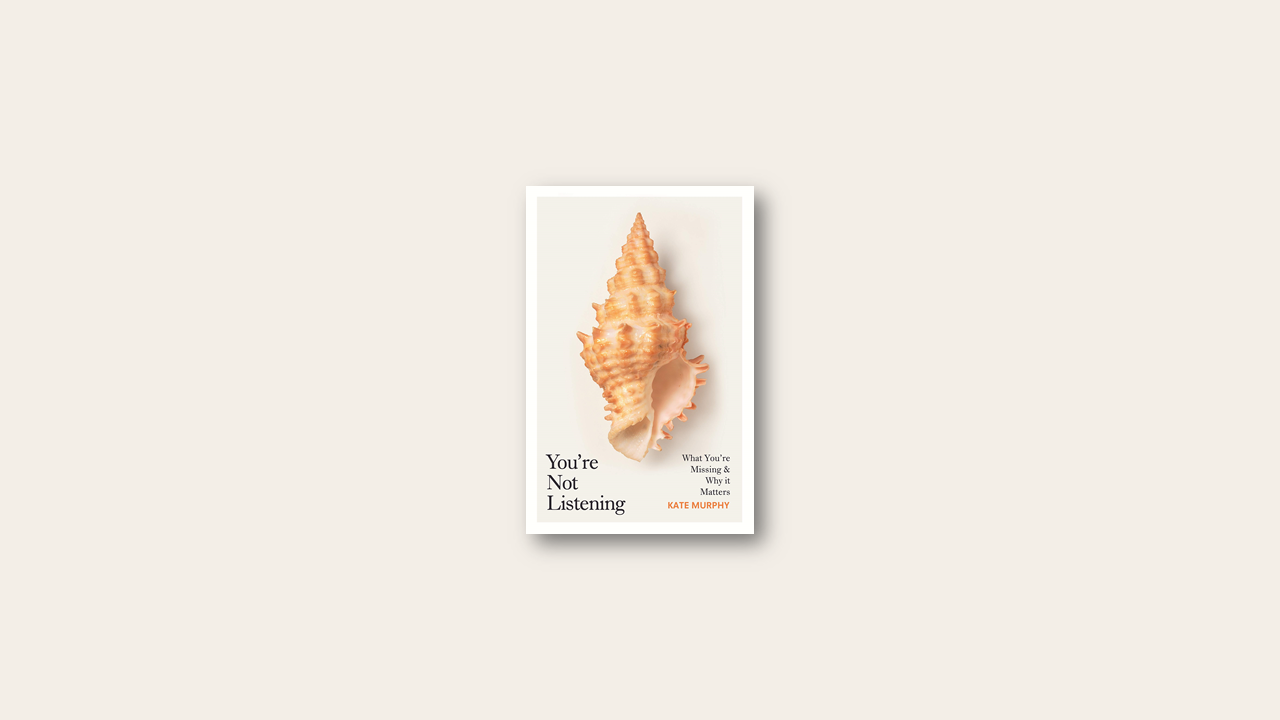Kindle | Hardcover | Audiobook
The lost art of listening
None of us are good listeners all the time. It’s human nature to get distracted by what’s going on around you and within you. Great listening takes time and effort. Like reading, you pay attention to some things while skimming others. But if you don’t do it enough, your ability to pay attention and focus degrades over time.
“If you start listening to everyone as you would scan headlines on a celebrity gossip website, you won’t discover the poetry and wisdom that’s within people.”
That sync feeling: the neuroscience of listening
Each relationship shapes how we are in the world and with one another. These attachments come from listening to others. Talking without listening is like touching without being touched. More encompassing than touch itself, our entire self vibrates with the sounds that are the expressed thoughts and feelings of another.
“Evolution gave us eyelids so we can close our eyes but no corresponding structure to close off our ears. It suggests listening is essential to our survival.”
Listening to your curiosity: what we can learn from toddlers
Curious people are fascinated by the unpredictability of others, rather than being fearful about it. They listen well because they want to connect and grow. Even people who you think would have heard it all, like CIA agents, priests, bartenders and psychotherapists, are continually amazed, entertained and even appalled by what they hear from people. It’s what makes their lives interesting, and it’s what makes them interesting to others.
I know what you’re going to say: assumptions as earplugs
“Staying in touch” or “keeping up” with someone is nothing more than listening to what’s going on in that person’s mind. It’s all too easy to get complacent about how well you know those closest to you. But it’s just as hard not to make assumptions about strangers based on stereotypes, particularly when reinforced by that person’s own overt social signaling. Listening keeps you from falling into those traps. Listening will overturn your expectations.
The tone-deaf response: why people would rather talk to their dogs
Having an open-mind and curiosity is a necessary state-of-mind to acknowledge someone’s point of view and build trust. All good listeners are practiced listeners. They deliberately trained themselves to take awareness, focus and experience to unearth what’s beneath the surface of every communication. As such, good listeners are not born. They’re made.
Listening to opposing views: why it feels like being chased by a bear
To listen to someone doesn’t mean or even imply that you agree with their point of view. It simply means you welcome the intimacy with the other person and what they’re saying and that you might learn something from their conversation. If you think about it, there are possibilities that there might be multiple truths and understanding them all lead to a greater and more meaningful truth.
“Good listeners know understanding is not binary. It’s not that you have it or you don’t. Your understanding can always be improved.”
Focusing on what’s important: listening in the age of big data
Information is only as useful as how it’s collected and interpreted. Algorithms are only as good as the scope and reliability of the data sets to which they’re applied. So, too, the findings of a qualitative researcher are only as good as one’s neruality, perceptiveness and ability to elicit emotions. When it comes to human interactions and diving peoples’ unique motivations, listening is by far, the best and most accurate tool.
Improvisational listening: a funny thing happened on the way to work
Humor is a form of connectedness born out of listening. People who dominate the conversations are unlikely to be successful in their careers, much less have fulfilling personal relationships. Humor, intimacy and innovating thinking all come to those who free themselves from the need to control the narrative. Improvisational listening requires you to have patience and confidence to follow the story wherever it leads.
What words conceal and silences reveal
We can’t talk our way into a relationship. Talking without listening and thinking fills the silence but erects a kind of word wall that separates you from others. Silence is what invites people in. People who’re comfortable with silence rarely speak out of discomfort and are likely to elicit more information.
“Resisting the urge to fill in the silence makes you more likely to leave the conversation with deeper insights and greater understanding.”
When to stop listening
When you have a hard time listening to some people in your life, ask yourself:
- Do they tell the same stories over and over again?
- Are they judging all the time?
- Do they exaggerate?
- Do they give too much detail?
- Do they talk about how great they are?
- Are they being too negative?
- Are they getting the facts wrong?
We have our own reasons. Just know what they’re and whether your reasons say more about you than they do about the other person. Also know that people change over time and so do our views of them. So, listen more and make an effort to understand before you finally decide to pull the plug.
Kindle | Hardcover | Audiobook


